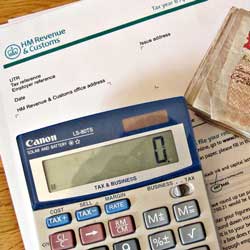There is a significant change in the approach which HMRC will be taking in dealing with tax returns relating to periods starting on or after 1 April 2008, where the return is due to be submitted on or after 1 April 2009.
HMRC have the legal right to enquire into any return and if they find that there is an error in that return which has caused tax to be underpaid, they have the power to levy a penalty which is usually based on the tax underpaid. It is these powers that are to change from April 2009.
New penalties
Under the new regime, there will be a presumption that every taxpayer has taken reasonable care in completing their tax return. What constitutes reasonable care will depend on the size of the case – a large company will be expected to have sophisticated accounting systems in place, whilst an individual will be expected to have records of all their income and expenses.
No penalty will arise if it can be shown that the error was due to a simple mistake by the taxpayer. The three levels of behaviour that will give rise to a penalty are defined as:
- careless action;
- deliberate action; and
- deliberate action with concealment.
Level of penalties
The legislation sets a maximum penalty for each type of offence. The rules then allow a certain level of reduction, taking into account only the level of disclosure, but there is a minimum penalty below which the Inspector will not be able to go.
These levels are considerably in excess of the levels which have, historically, been negotiated with HMRC for similar types of offence. It seems inevitable that the cost of making an error is going to increase significantly and the utmost care needs to be taken in keeping records to ensure that they are accurate and complete.
The future
We are expecting HMRC to finalise guidance on these matters in the next few months and we will keep you up to date with developments. We will also let you have details in due course of the other changes that are being introduced, such as powers to obtain information from taxpayers and third parties. In the meantime, if you have any queries about this area, please do not hesitate to contact us.
Source: HMRC guidance on penalties





